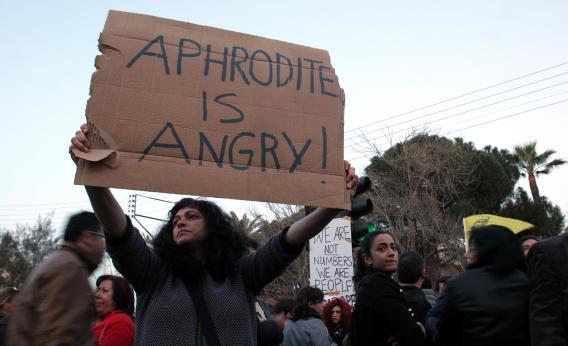One thing is clear: If a small country were to leave the eurozone, it would need to adopt capital controls—which is to say rules restricting your ability to take money out of the country. Foreign exchange is going to be needed to purchase key imports from abroad, so for at least a little while the kind of free movement of capital that’s become commonplace in developed countries is going to have to be curtailed.
Today, all reports are that Cyprus and the European Union are looking at putting capital controls in place on the island. That naturally raises the question of whether Cyprus is leaving the euro. The word is that no, they’re not. But the idea of capital controls in the context of a currency union is a bit of an odd one.
That’s not to say that departure from a currency union is the only scenario in which capital controls make sense. There’s a strong case that the move to free cross-border financial flows was a mistake. In theory, financial globalization could have been a good idea but in practice it did too much to undermine national-level bank regulation. But that’s still not the same as saying that you would have capital controls inside a currency union. After all, if a euro in a Cypriot bank account can’t be swapped for a euro in a Dutch bank account then in what sense are they really both the same currency? A Cypriot euro and a Dutch euro would in some sense be more different than a U.S. dollar and a Canadian dollar.
Of course just thinking about this simply takes you back to some of the underlying conceptual flaws in the eurozone. It turns out that a euro in a Dutch bank and a euro in a Cypriot bank aren’t equivalent because they participate in different deposit insurance schemes backed by different sovereigns. To truly have a common currency you need common deposit insurance. And to have that, you need at least a limited common fiscal agent and a common bank regulator. But the eurozone doesn’t have any of those things and constructing them on the fly is a tall order.
